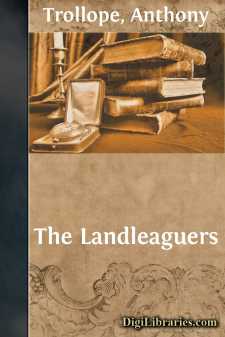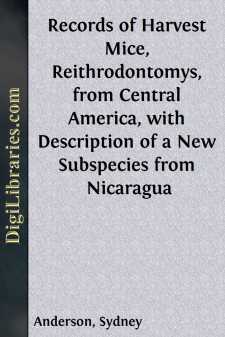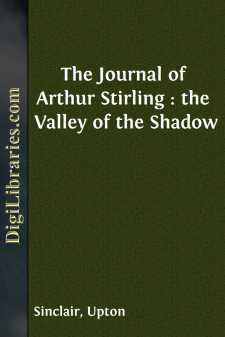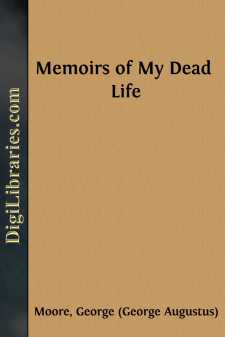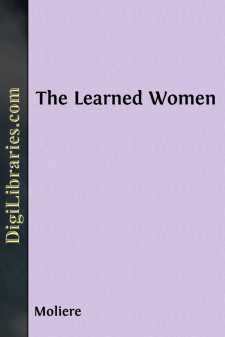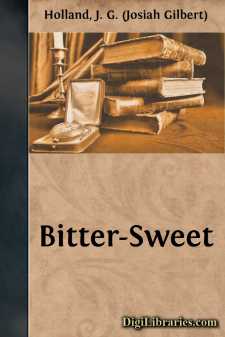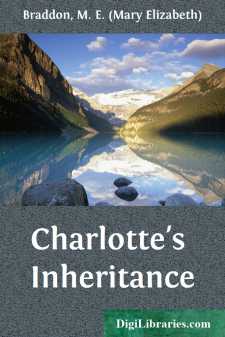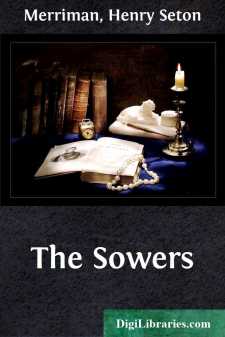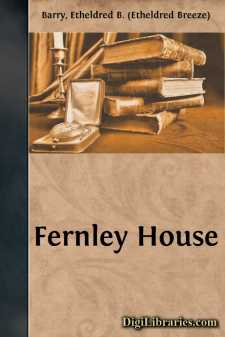Fiction
- Action & Adventure 180
- Biographical 15
- Christian 59
- Classics
- Coming of Age 5
- Contemporary Women 3
- Erotica 8
- Espionage/Intrigue 12
- Fairy Tales, Folklore & Mythology 236
- Family Life 169
- Fantasy 117
- Gay 1
- General 596
- Ghost 32
- Historical 808
- Horror 43
- Humorous 160
- Jewish 25
- Legal 4
- Medical 22
- Mystery & Detective 315
- Political 49
- Psychological 41
- Religious 64
- Romance 159
- Sagas 11
- Science Fiction 730
- Sea Stories 113
- Short Stories (single author) 537
- Sports 10
- Suspense 1
- Technological 8
- Thrillers 2
- Urban Life 31
- Visionary & Metaphysical 1
- War & Military 173
- Westerns 199
Classics Books
Sort by:
by:
Anthony Trollope
MR. JONES OF CASTLE MORONY. In the year 1850 the two estates of Ballintubber and Morony were sold to Mr. Philip Jones, under the Estates Court, which had then been established. They had been the property of two different owners, but lay conveniently so as to make one possession for one proprietor. They were in the County Galway, and lay to the right and left of the road which runs down from the...
more...
by:
Sydney Anderson
Since 1952 when Hooper's review of Latin American harvest mice was published, collectors from the Museum of Natural History of the University of Kansas have visited several countries in Central America, and have obtained many additional specimens. Among these we find a new subspecies of Reithrodontomys fulvescens from Nicaragua, significant extensions of known geographic range for several other...
more...
by:
Upton Sinclair
PART I WRITING A POEM The book! The book! This day, Saturday, the sixth day of April, 1901, I begin the book! I have never kept a journal—I have been too busy living; but to-day I begin a journal. I am so built that I can do but one thing at a time. Now that I have begun The Captive, I must be haunted with it all day; when I am not writing it I must be dreaming it, or restless because I am not....
more...
APOLOGIA PRO SCRIPTIS MEIS [The APOLOGIA which follows needs, perhaps, a word of explanation, not to clear up Mr. Moore's text—that is as delightful, as irrelevantly definite, as paradoxically clear as anything this present wearer of the Ermine of English Literature has ever written—but to explain why it was written and why it is published. When the present publisher, who is hereinafter, in...
more...
by:
Moliere
ACT I. SCENE I.—ARMANDE, HENRIETTE. ARM. What! Sister, you will give up the sweet and enchanting title of maiden? You can entertain thoughts of marrying! This vulgar wish can enter your head! HEN. Yes, sister. ARM. Ah! Who can bear that "yes"? Can anyone hear it without feelings of disgust? HEN. What is there in marriage which can oblige you, sister, to…. ARM. Ah! Fie! HEN. What? ARM. Fie!...
more...
by:
George T. Ashley
INTRODUCTION When the traveller, bent on some important quest, makes a prolonged and perilous journey and returns in safety to his friends and neighbors, instinctively those who have known him in former years realize that he is, and he is not, the same person who had dwelt among them. He has seen unfamiliar peoples, traversed strange lands, encountered unexpected dangers. Old prepossessions have been...
more...
PICTURE. Winter's wild birthnight! In the fretful East The uneasy wind moans with its sense of cold, And sends its sighs through gloomy mountain gorge, Along the valley, up the whitening hill, To tease the sighing spirits of the pines, And waste in dismal woods their chilly life. The sky is dark, and on the huddled leaves— The restless, rustling leaves—sifts down its...
more...
CHAPTER I. LENOBLE OF BEAUBOCAGE. In the days when the Bourbon reigned over Gaul, before the "simple, sensuous, passionate" verse of Alfred de Musset had succeeded the débonnaire Muse of Béranger in the affections of young France,—in days when the site of the Trocadero was a remote and undiscovered country, and the word "exposition" unknown in the Academic dictionary, and the Gallic...
more...
CHAPTER I A WAIF ON THE STEPPE "In this country charity covers no sins!" The speaker finished his remark with a short laugh. He was a big, stout man; his name was Karl Steinmetz, and it is a name well known in the Government of Tver to this day. He spoke jerkily, as stout men do when they ride, and when he had laughed his good-natured, half-cynical laugh, he closed his lips beneath a huge gray...
more...
A DUET "Well, Margaret!" "Well, Uncle John!" "Not a word to throw at a dog, as Rosalind says?" "You are not a dog, Uncle John. Besides, you know all about it without my saying a word, so why should I be silly, and spoil your comfortable cigar? Dear children! They will have a delightful time, I hope; and of course it is perfectly right that they should go to their father when...
more...


